Impact of COVID-19 on Sports (Football) Industry
Furloughing non- playing staff and then reversing the decision by clubs like Tottenham Hotspur and Liverpool due to criticism shows desperate situation clubs around the globe are in and other clubs in various countries have begun to lay off players and non-playing staffs.
Like all the sectors and industries, the sports industry is no exception to pandemic COVID-19. This might not be the time talking about football or any sports but sports (football) industry is one of the major players in the global economy. Since we are talking every day about the economy and economic crisis, why not talk about the sports industry ($500bn approx.) and assess its current and upcoming situation?
Around $4.5bn, the loss is expected from lost broadcasting, sponsorship, and matchday revenue for “Big five” leagues if the season is not completed.
This is the greatest disruption in
sporting events since World War II that has affected the whole world. All
of the sporting events have been canceled or postponed. Big sporting events
like the Olympics, Euros, Copa and Wimbledon, etc. have not been spared. We will assess the current "Football Industry" focusing on the "Big Five".
Like other sectors, there are millions
of lives in football that have been affected due to COVID-19. Generally, when
we think about football, we only think about this beautiful game played on a
football pitch and the players or managers involved but the bigger picture shows
that there are millions of life connected through football.
Be it a pub owner, restaurant, travel and ticketing agency or staff who work to make the game possible like security, ground staff, driver, cameraman, control system staff, broadcasting unit, cleaning staff, etc all are affected.
Many unseen or unheard “players” behind the scene contribute in making this beautiful masterpiece.
Be it a pub owner, restaurant, travel and ticketing agency or staff who work to make the game possible like security, ground staff, driver, cameraman, control system staff, broadcasting unit, cleaning staff, etc all are affected.
Many unseen or unheard “players” behind the scene contribute in making this beautiful masterpiece.
Most football players outside the elite
leagues have earned similar to or below average national income and will have
a devastating effect by salary decrease (FIFPRO, 2020) [1] .
How does the Football Industry run? (Current Situation)
Generally, three main ways that
football or any sporting event generates income are broadcasting, commercial, and matchday revenue. The basic concept is like - if more people are watching,
it will become more valuable and generates more cash. More than half of the
global population (3.5 billion) people turned over to watch the FIFA World Cup
2018 according to FIFA [2].
World Cup is known as the
mega event of football but it takes place only once every four years. Nurturing
and developing football every day is carried out by various club systems in
various countries across the globe. The popularity of football and the level of
affluence on which it operates is very hard to compare with any other sport. Club
games satisfy the craving of football fans around the world each year so that
waiting for the “big event” World Cup becomes bearable.
Commercial sponsors and advertisers pay large sums of money for the opportunity to associate their brands with Football, and television networks engage in extensive bidding wars for the rights to broadcast the event’s matches.
In the United Kingdom alone, the domestic rights for live television broadcasts of the EPL’s 2016-2017 to 2018-2019 seasons were sold for over $7.3 billion ($2.4 billion per season) to the highest bidders(League, 2015) [3] .
In the United Kingdom alone, the domestic rights for live television broadcasts of the EPL’s 2016-2017 to 2018-2019 seasons were sold for over $7.3 billion ($2.4 billion per season) to the highest bidders
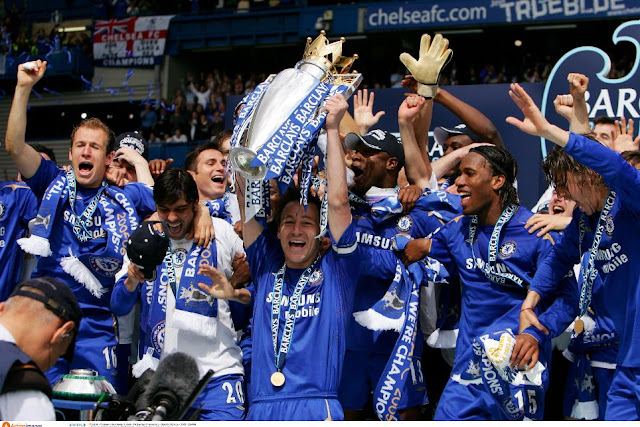 |
| Source: English Premier League |
Current Broadcasting deal (Top five leagues)
League
|
Broadcasting Worth (Domestic + International – Approx. in
billions)
|
EPL (England)
|
$3.8bn
|
La Liga (Spain)
|
$2.3bn
|
Bundesliga (Germany)
|
$1.5bn
|
Seria A (Italy)
|
$1.4bn
|
Ligue 1 (France)
|
$1.3bn
|
Source: (Sartori, 2019) [4]
As the interest and viewership numbers
continue to rise, so, too, will the payments made through foreign broadcasting
deals. This will only pump more money into the pockets of team owners, who will
likely then reinvest these revenues in their teams.
Current Shirt sponsorship deals (Europe’s Big Five)
Clubs
|
Sponsorship deals
|
Real Madrid
|
€190m per year(€120m from Adidas, €70m from Emirates)
|
Manchester United
|
€161m per year(€86.9m from Adidas, €74.1m from Chevrolet)
|
Barcelona
|
€160m per year(€105m from Nike, €55m from Rakuten)
|
Paris Saint- Germain
|
€135m per year(€75 from Nike, €60m from Accor Live
Limitless)
|
Manchester City
|
€127.4m per year(€75.3 from Puma, €52.1m from Etihad)
|
Source: (Browning, 2019) [5]
Now you know how your club can afford the wage of your favorite star. :)
The biggest or most-watched football league in the world, English Premier League (EPL) recently signed a contract of $12bn with broadcasters for three seasons in 2019 which at the time looked as extraordinary feat but that might change quickly. EPL clubs are bracing themselves for $60-150m in lost revenue due to COVID-19.
The biggest or most-watched football league in the world, English Premier League (EPL) recently signed a contract of $12bn with broadcasters for three seasons in 2019 which at the time looked as extraordinary feat but that might change quickly. EPL clubs are bracing themselves for $60-150m in lost revenue due to COVID-19.
Broadcasters are trying to continue to engage
customers by showing classic matches, archived contents, documentaries, Esports, and niche competitions during this crisis so that subscription doesn’t drop.
Around $4.5bn, the loss is expected from lost broadcasting, sponsorship, and matchday revenue for “Big five” leagues if the season is not completed.
Around $4.5bn, the loss is expected from lost broadcasting, sponsorship, and matchday revenue for “Big five” leagues if the season is not completed.
The sponsors and broadcasters do a lot
of reinvestment in large amounts according to sporting potential. The current
financial model used has been hit very hard particularly in small and mid-sized
leagues. Due to the current scenario, leagues are unlikely to meet their
commitments to broadcasters that will limit the distribution of income back to
the club. No live games mean no TV deals and no matchday income; no income
means no club. This is a scary scenario for all the football associations
around the globe (Hall, 2020) [6] .
So, What’s next?
These options are considered to
deal with this crisis:
- Cancel or void this season: No promotion or relegation and no Champions. Few leagues have already done this and looks the most logical option at the moment. A recent example is Ligue 1 (France) and the Dutch league knows as Eredivisie to do so [7]. But this option violates the contract with the broadcasters and they might demand huge compensation.
- Finish the league as it is: Many would say this is the fairest option of all but think about the relegation battle. Relegation is not decided yet in most of the leagues so there is a chance for the clubs to avoid it. Further, relegation isn’t just about the league status but a huge amount of money is associated with it which can suck the life out of any club.
- Use a mathematical tool to predict: I am not a fan of this option because we all love football because of its unpredictability. Using a model in simple words is just making a more sophisticated prediction. This method is very unlikely considering the current updates form Associations.
- Playing behind closed doors: Empty stadium with no football fans. I don't know if it will be considered a proper "football match" without fans. However, this is the most likely scenario for EPL, La Liga, Seria A, and Bundesliga. Bundesliga is expected to restart around May 8 and players for other leagues are returning for training. All the games might be played in the area, which is less affected in Neutral ground. Some clubs like Chelsea have provided their hotel for NHS (health workers [8]) so it’s very unlikely that the games will be played in the club’s home stadium. This will result in the isolation of players, staff, and all the people involved for at least a month or two.
The main reason to finish this season in
this manner, risking the lives of people (player, staff, and other) is to save money;
Associations have to pay back broadcasters for not fulfilling their commitments.
Since everybody is in loss; no one can
come victorious in this situation. However, through mutual
understanding/clauses that will mitigate the effect like paying broadcasters
certain compensation, granting additional rights and extended agreements are
some of the measures that might ease the situation (Hall, 2020) . If all the bodies (Nations, Clubs, Players, Staff, and People) play their part then it will be easier to survive and avoid unnecessary damage.
Is it a wise decision to take such a
high risk of exposing and separating people from their families in this dire situation?
Only time can tell.
Next season football is already
affected and we can only imagine the consequences it will lead.
The bigger question is ” Will the football
we all know change”?
And
And
Something to hope for
With an ancient origin dating back to
the second and third centuries B.C., football has managed to withstand the
tests of time and propagate its legacy amidst the rise and fall of empires, the
outbreak of deadly diseases, and the conflicts brought forth in back-to-back,
world wars. That it has survived in some form or fashion over these 2,000-plus
years lends credence to both its inherent durability and its longstanding
ability to capture the attention of the masses (Pifer, Wang, Scremin, Pitts, & Zhang, 2018) [9] .
I hope it will continue to survive for
centuries to come because there is a power in football that brings people
together. I wish for everyones safety and good health. We have to be patient. This time will pass and
we will be back stronger than before and we'll enjoy this beautiful masterpiece together again.
If you are interested in the Impact of COVID-19 on Supply Chain. Please Click here and for Lock down Stories, Click here.
Thank you for your visit. I hope everything was clear, if not please do not hesitate to contact me for suggestions or queries regarding this topic. Honest feedback is highly appreciated. You can contact me via “ashishworks2020@gmail.com “. Thanks again.
References
Browning,
O. (2019, 10 26). The top 10 teams with the most lucrative kit sponsorship
deals in world football. Retrieved from Givemesport:
https://www.givemesport.com/1516260-the-top-10-teams-with-the-most-lucrative-kit-sponsorship-deals-in-world-football
FIFPRO. (2020, March 27). CORONAVIRUS
IMPACT ON PROFESSIONAL FOOTBALL. Retrieved from Football Players
Worldwide:
https://fifpro.org/es/sector/coronavirus-s-impact-on-professional-football
Hall, S. (2020, April 09). This
is how COVID-19 is affecting the world of sports. Retrieved from World
Economic Forum:
https://www.weforum.org/agenda/2020/04/sports-covid19-coronavirus-excersise-specators-media-coverage/
League, P. (2015, August 21). Premier
League awards UK live broadcast rights for 2016/17 to 2018/19. Retrieved
from Premier League:
https://www.researchgate.net/deref/http%3A%2F%2Fwww.premierleague.com%2Fen-gb%2Fnews%2Fnews%2F2014-15%2Ffeb%2F100215-premier-league-uk-live-broadcasting-rights-announced.html
Pifer, N., Wang, Y., Scremin, G.,
Pitts, B., & Zhang, J. (2018). Contemporary global football industry: An
introduction. 10.4324/9781351117982-1. ResearchGate.
Sartori, A. (2019, 08 06). Broadcasting
revenue landscape – big money in the “big five” leagues. Retrieved from
Football Benchmark: https://www.footballbenchmark.com/library/broadcasting_revenue_landscape_big_money_in_the_big_five_leagues

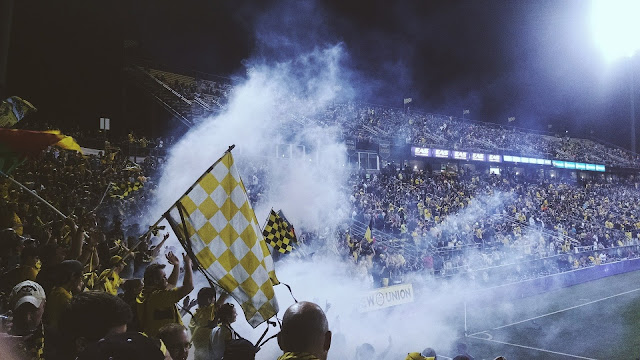
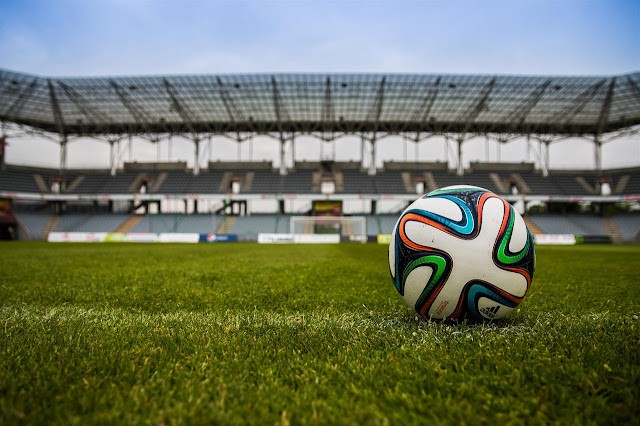

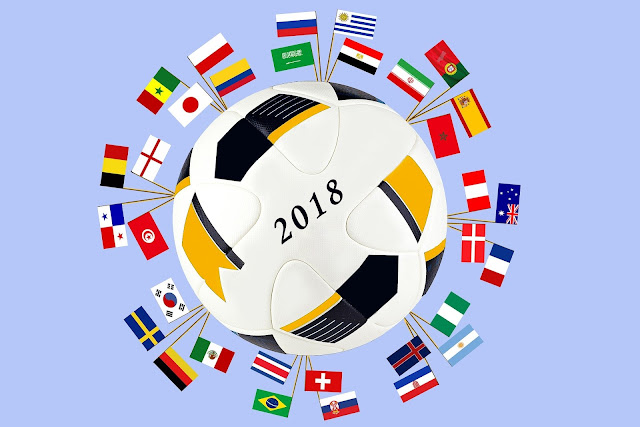



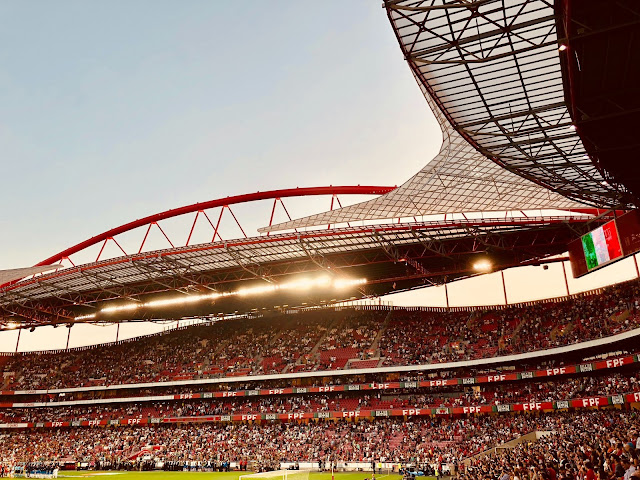





Nice analysis. Very well written.
ReplyDeleteThank you. Glad you liked it! :)
Delete